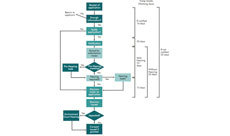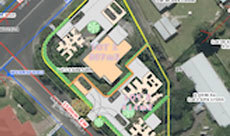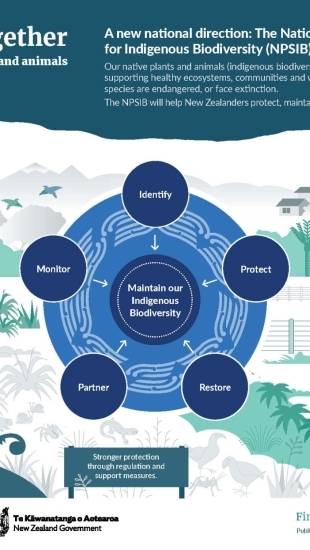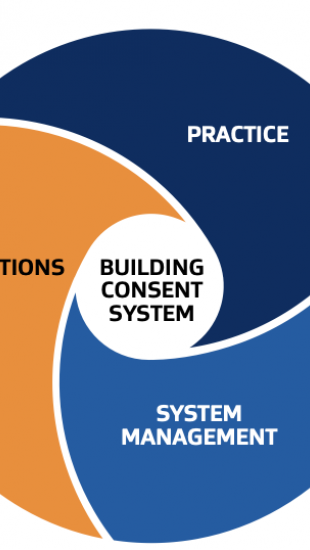Frequently Asked Questions
What type of applications can be lodged with the Nationally Significant Proposals Division of the EP
Matters (applications for resource consents, notices of requirement or requests for regional plans or private plan changes) can be lodged directly with the Environmental Protection Authority (EPA). The point of applying directly to the EPA, instead of to the relevant council, is to obtain a more streamlined decision-making process. The Minister can only refer a matter to a board of inquiry or the Environment Court that is or is part of a proposal of national significance. So you should not lodge a matter with the EPA unless you think it is nationally significant.
What is a Code Compliance Certificate?
The Code Compliance Certificate (CCC) confirms that the work has met the requirements of the Building Code 2004 and has been built in accordance with the approved plans.
What is a hearing Commissioner?
A commissioner is a person appointed by a council to carry out statutory decision-making duties on the council’s behalf, or to serve as an independent adviser to the council in the making of those statutory decisions.
Commissioners may be generally classified as:
- internal commissioners – who are appointed from within a council
- independent commissioners – who are not a member of the council i.e. appointed from outside the elected members or staff of a council.
Commissioners cannot:
- approve a proposed policy statement or plan; or
- delegate any powers or functions delegated to them.
These powers are given to a council only.
Commissioners can be delegated powers in respect of:
- making decisions on proposed policy statements, proposed plans, variations or plan changes (other than approval)
- making decisions on resource consent applications and recommendations on notices of requirement
- making decisions on the notification or non-notification of resource consents
- making decisions in regard to the service of an application
- making decisions on plan changes or variations and on submissions to plan changes (other than declaring a plan change operative)
- reviewing resource consent conditionsproviding advice on technical or procedural matters in assisting councils to make decisions on particular applications.
What is a Board of Inquiry?
A Board of Inquiry is an independent body appointed to make a decision on a project of national significance.
I have received a notice to fix, what do I have to do?
A notice to fix may require the owner to:
• apply for an additional building consent to carry out the remedial work
• apply for an amendment to the existing consent
• complete the work required
• remove the work not covered by the consent
apply for a Certificate of Acceptance.
What is a notice to fix?
Where building work has been found to not comply with the regulations, the council will issue a notice to fix. This specifies exactly what is wrong, what needs to be done to correct the problem and when it needs to be done by. A failure to comply with a notice to fix can result in fines up to $200,000 with a further $20,000 a day until the work is completed.
What is a determination?
A determination is a decision made by the chief executive of the Department of Building and Housing. It provides a way of solving disputes or questions about whether something complies with the Building Code or decisions made by BCAs, councils and regional authorities under the Building Act.
Can I get a retrospective building consent for work done without consent?
No. The Building Act 2004 allows for any person to apply for a Certificate of Acceptance for any work that has been completed without a building consent. This however is only applicable to work carried out after the inception of the Building Act 1991 (1 July 1992). A Certificate of Acceptance must be applied for on the appropriate application form.
If you build without a building consent you are liable for a fine, may have trouble selling your property and it may affect your insurance. If property is damaged or destroyed because of a fault occurring in the unauthorised work, an insurance company could legally refuse to pay you.
Council is bound by the Building Act 2004 and has a role to ensure the health and safety of the public, with regard to dams and associated buildings, is always maintained. If you are aware of a situation that you believe compromises the health and safety of the public then you need to refer the matter to the council at the earliest date.
What is a building consent?
Means consent to carry out building work granted by a building consent authority (BCA). The BCA must be satisfied on reasonable grounds that the provisions of the building code would be met if the building work were properly completed in accordance with the plans and specifications that accompanied a building consent application.
Can a Building Consent Be Issued Prior to a Resource Consent?
A building consent may be issued prior to the approval of resource consent, however this will usually be subject to a certificate attached, restricting the commencement of the work until the resource consent has been granted. When the Council receives a Building Consent application, it is checked by one of Council’s Planners against the District Plan rules. If it is determined that a resource consent is needed to undertake the activity, a certificate is issued under section 37 of the Building Act advising that no works can proceed until a resource consent is obtained.
Do I have to tell my neighbour or anyone else about my proposal?
It is courteous to consult with your neighbour before starting construction work or you have a proposal in mind. However, you are not legally bound to do this unless your project requires resource consent and we consider that your neighbours, or any other person, are likely to be affected. You may get advice from Gulab on this matter.
What is Section 224(c) approval?
This is an approval by the council under section 224(c) of the Resource Management Act that confirms that all of the conditions of your consent have been met or will be met later but secured by a bond to council. This approval enables Land Information New Zealand to issue new titles.
If you fail to lodge the section 224(c) certificate with the District Land Registrar within three years of the survey plan approval, the consent will lapse. If this happens you will need to apply for new subdivision consent.
A territorial authority must not issue a certificate under section 224(f) of the Resource Management Act 1991 for the purposes of giving effect to a subdivision affecting a building or part of a building unless it is satisfied, on reasonable grounds, that the building will comply, as nearly as is reasonably practicable, with every provision of the building code that relates to one or more of the following.
• Means of escape from fire.
• Access and facilities for people with disabilities (if this is a requirement for the building).
• Protection of other property.
The building must also continue to comply with the other provisions of the building code to at least the same extent as before the subdivision application was made.
What is Section 223 approval?
This is an approval by the council under section 223 of the Resource Management Act 1991 that your survey plan is in accordance with your Subdivision resource consent. Once subdivision consent is issued you have five years to lodge a Survey Plan with Council.
I have already got my Resource Consent and Council has told me I now need Subdivision consent?
You have probably already got a Land Use Resource Consent that enables you to build a second dwelling on to your property. However if you want to subdivide your property so that the 2 houses are on separate certificates of title, you will need to obtain Subdivision Resource Consent from Council. This means preparing a new application in terms of Council’s District Plan Rules and making sure your development meets the necessary requirements. Again Gulab can assist you here.
Will I need to pay a Development Contribution? Can I get an estimate of what this will be?
Your proposal may result in additional demand to Council-owned services (such as roading, reserves) and therefore will require the payment of a development contribution (DC). The full policy on DC’s can be found on all the Council websites. A basic DC estimate calculator is available online for urban developments. Application for estimates can also be made. Ask Gulab for help in this matter.
What if I don't follow the conditions of my resource consent?
Failing to keep to the consent conditions may damage the environment and could also lead to enforcement action being taken against you, though sometimes problems can be resolved through discussion.
Who pays for the monitoring?
Council charges the actual and reasonable costs for compliance monitoring to the consent holder.
Are there charges for holding a resource consent?
Yes. Some resource consent holders are charged annual fees.
In addition, the direct costs of Council monitoring consent conditions are recovered from the consent holder.
What is involved in the monitoring of resource consents?
Monitoring resource consent activity is done to check on the activity's environmental effects and to check whether a consent is being used according to its limits and conditions.
Some consent holders are required to do monitoring themselves and send the results to Council for checking. Council staff also carries out compliance monitoring. Sometimes a combination is used.
Council staff may also undertake monitoring if Council receives a complaint about an activity that affects the environment.
Can someone else apply for a consent on my behalf?
Yes. You can ask someone else, such as Gulab, to apply for your resource consent on your behalf. They should be listed under the name and address for service on the resource consent application form. Council will deal with Gulab throughout the consent application process.
Can I cancel my resource consent?
Yes, you can. There are conditions attached to the process. Please contact Gulab or Council to find out more.
Can I change my resource consent?
The duration or term of the resource consent cannot be changed. However, you can apply to change or cancel any other conditions.
What happens if I don't use my consent?
If you do not start the activity authorised by your resource consent within five years of it being granted (or the commencement date specified on the consent), the resource consent will automatically lapse. If a consent is exercised and then not exercised for a continuous period of five years Council can also cancel a consent by giving written notice to the consent holder.
You can apply to Council for an extension of the lapsing period provided you apply before the consent lapses.
Can I transfer my resource consent to someone else?
Resource consents relating to land use generally 'run with the land' and will be transferred when you sell your property or business and the new owner wishes to continue the activity authorised by the consent.
Regional consents such as air, discharge and coastal consents belong to the consent holder. They can be transferred but you will have to notify Council before any transfer takes effect.
Can I surrender my consent?
Yes, if you no longer wish to undertake the activity which it authorises. Council must give notice of acceptance before the surrender takes effect. Prior to surrender you are liable for:
o Any non-compliance with any consent conditions prior to surrender.
o Any consent holder charges for the consent up to the time of its surrender.
If there are any incomplete works at the time you apply to surrender the consent, Council may direct you to complete the works.
Gulab can assist you here for making an application to Council if you wish to surrender your consent.
What happens if I do not use my consent?
If you don’t use your consent within five years of your consent being approved, it will lapse and you will not be able to use it. There may be instances where conditions on your consent specify a shorter period than five years. If you don’t want your consent to lapse, you can apply for an extension of lapse time – but you need to do this before your consent lapses. Gulab can make this application for you.
Also, if you start using your resource consent then stop using it altogether for five years or more, Council can cancel it.
Can I change my consent conditions?
At any time, you can apply to change or cancel a consent condition:
o For changes to conditions for applications that were not notified or were not the subject of submissions, this may be a simple process involving a report by the consent officer and an amendment of your consent.
o For changes to conditions for applications that were publicly notified and were the subject of submissions, the process may involve obtaining agreement from the submitters, or may even require a hearing.
The expiry date of a resource consent cannot be changed by seeking a change of conditions.
Contact Gulab if you want condition(s) to be varied or cancelled.
How long does my resource consent last?
The 'term of consent' (the life of your consent once implemented) varies depending on the type of consent it is. The term of some consents are unlimited. If your consent has a limited term, this will be specified in your consent.
If you have a limited term consent, you may apply to replace your consent no less than six months before the expiry date. In this case you can continue to operate under the conditions of the original consent until your application to replace the consent is decided.
Why do I have conditions on my consent?
Conditions are placed on your consent activity to protect the natural and physical environment for current and future users. It is your responsibility to adhere to the conditions placed on your consent activity. They are designed to avoid or mitigate any negative environmental effects resulting from your activity.
Where do I find all the rules that apply to my property?
Rules relating to the bulk and location of buildings are located in the District Plan and District Plan Changes. You also need to carefully check through any documents that are registered on your certificate of title, including consent notices and covenants as these often contain additional requirements. Gulab can assist in this regard.
My neighbour has asked me to sign an ‘Affected Party Approval Form’ for their development. What
This means they would like you to approve of their proposal. If you elect to provide your written approval, you essentially agree to any effects that the proposal may result. The Planner processing your application will need to disregard you from their assessment. Before providing your written approval you should understand the full extent of what is proposed and the likely impact on you. Contact Gulab for help.
What is a Certificate of Compliance (CoC)?
This is recognition from Council that your activity can take place without consent. RMA provides that a council, on request, must issue a CoC if the activity can be done lawfully on the site without resource consent and the council fee is paid.
Information requirements for CoCs are rigorous and the onus rests on an applicant to provide the council with full information to demonstrate a CoC can be issued. If any element of non-compliance is identified, then a CoC cannot be issued. Gulab can assist you here if you wish to apply for a CoC.
How long will it take to process my application?
The Council has a maximum of 20 working days to process a non-notified resource consent application, excluding time where further information or the written approval of affected parties is sought. The time taken to process each individual application varies; however a decision is often issued in well under 20 working days.
Publicly Notified and Limited Notified resource consents have a longer processing period - up to 70 working days.
How much will it cost to process my application? Does the deposit fee cover all the costs?
An initial deposit is required at the time of lodging any resource consent application. The deposit is not generally expected to cover the full cost of processing the application. Resource consent processing is on a user pays basis. For notified applications further deposits are payable at the time of notification and prior to a hearing date being set.
What are charges for processing and monitoring consents under the RMA?
Section 36 of the Resource Management Act 1991 (RMA) enables councils to charge applicants for receiving, processing and granting consents; and consent holders for administering, monitoring and supervising consents.
There are four key terms that need to be defined at the outset of this guidance note:
Fixed charges : These are charges that cover the total cost of an application or compliance monitoring activity and which are levied at the start of the process. Fixed charges are not supplemented by additional actual and reasonable charges once the consent or compliance monitoring process is complete. Fixed charges are deemed to be 'actual' charges which are not subject to the rights of objection and appeal (s357B to s358).
Fixed initial deposit charges: These are charges levied at the start of the application process (or preceding a compliance monitoring activity). Fixed initial deposit charges are supplemented by additional actual and reasonable charges once the consent process is complete. Fixed initial deposit charges are not subject to the rights of objection and appeal (s357B to s358), but they need to be developed using the public consultative procedure set out in s83 of the Local Government Act 2002 (LGA).
Additional charges: These are actual and reasonable costs that are charged at the end of the consent application process (or completed compliance monitoring activity) under s36(3) that recover the council's full costs, less the fixed initial deposit charge already paid. Additional charges are subject to the rights of objection and appeal (s357B to s358).
Occasioned : The term 'occasioned' as used in s36(4)(b)(ii) of the RMA is taken to mean that it created a cause or reason to do something.
What is a Resource Consent? How is it different from Building Consent?
A resource consent is essentially the planning permission of the Council to undertake an activity that is not specifically permitted by District Plan. Resource consents are administered under the Resource Management Act 1991 (RMA), while Building Consents are administered under the Building Act 2004. While the Building Act is concerned with the functional requirements of buildings and other structures, the RMA is concerned with sustainable management, such as effects on your neighbours and the surrounding area. It is common to obtain both resource consent and a building consent for a project.
What are Non-Working Days?
Working day means any day except—
• (a) a Saturday, a Sunday, Good Friday, Easter Monday, Anzac Day, Labour Day, the Sovereign’s birthday, and Waitangi Day; and
• (b) a day in the period beginning on 20 December in any year and ending with 10 January in the following year.


















